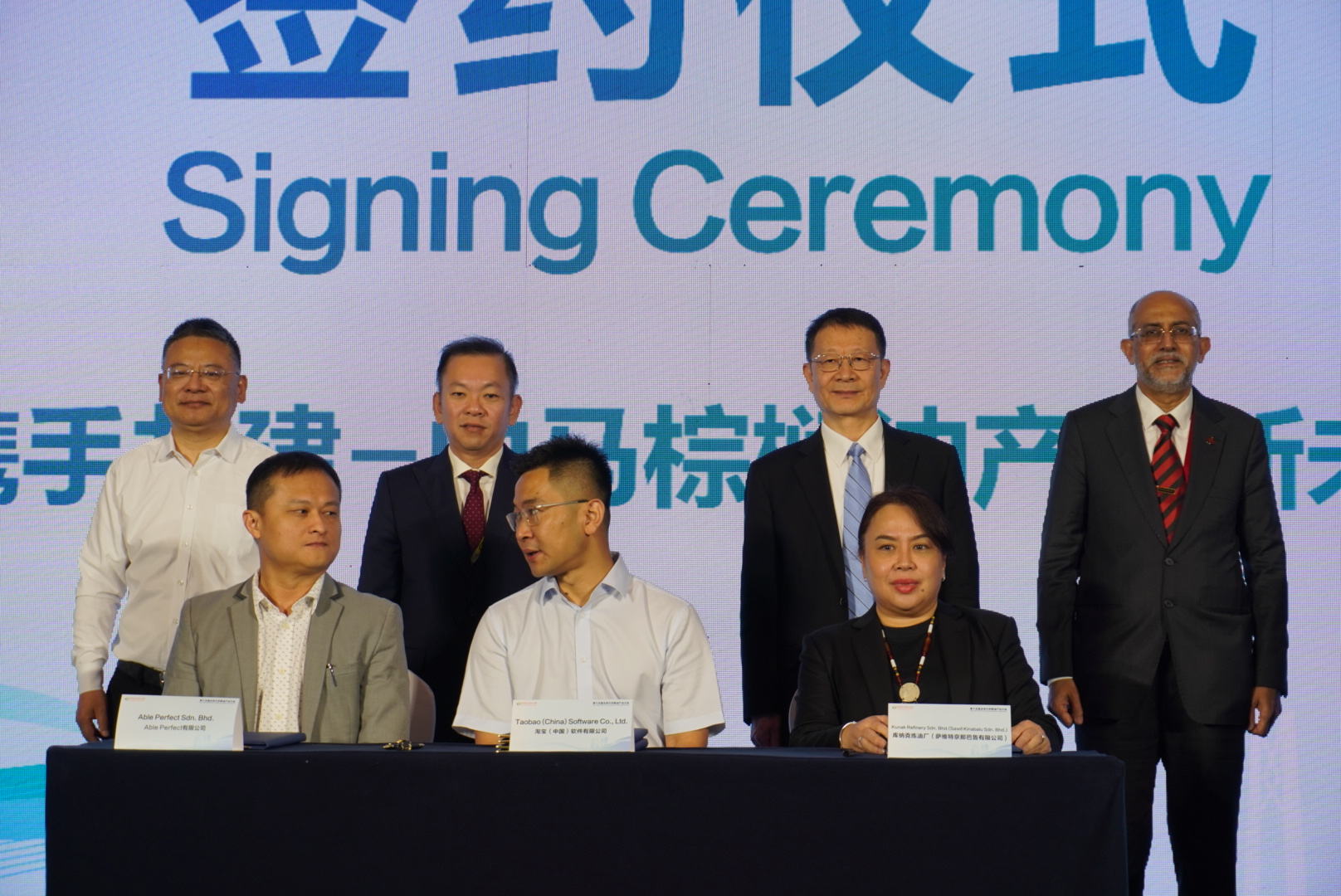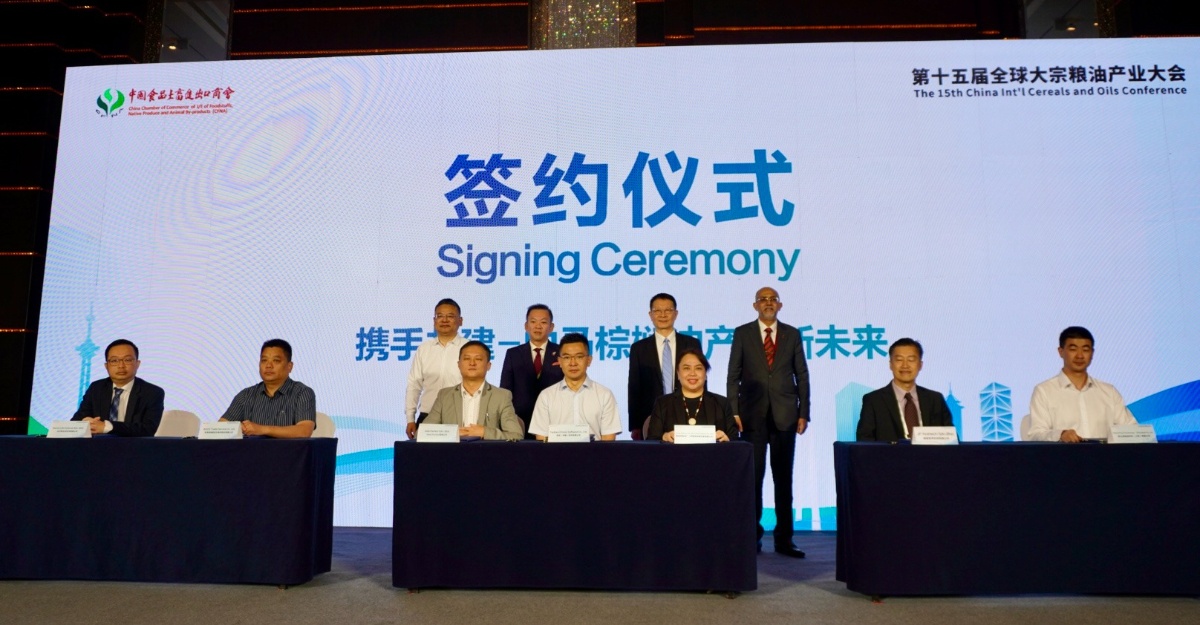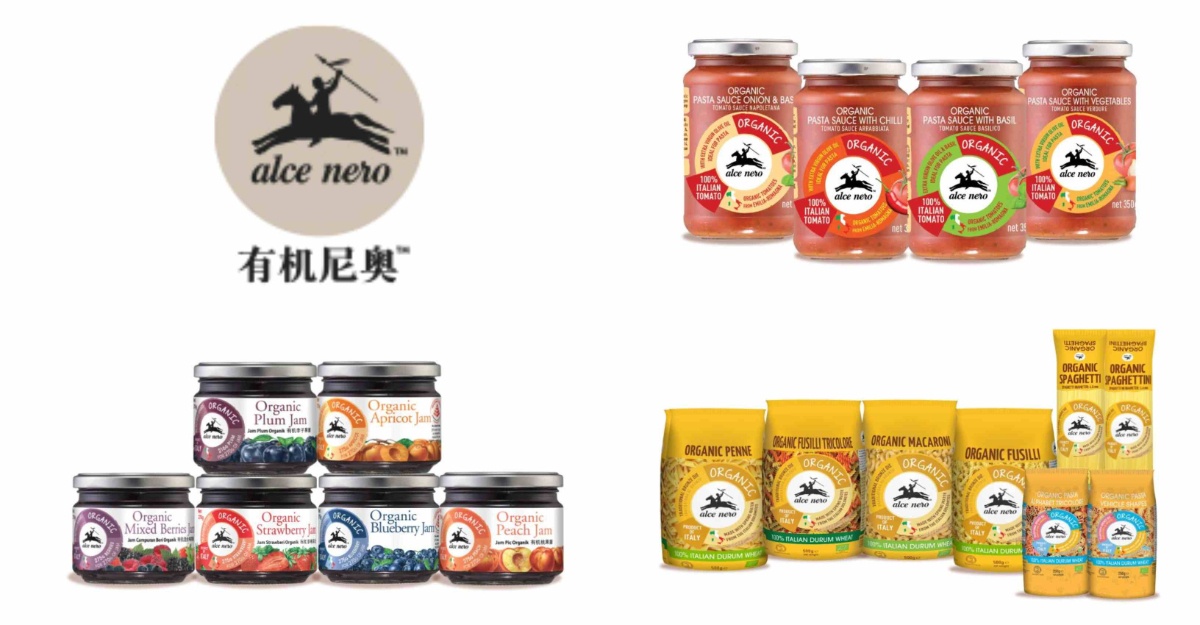YB Datuk Chan Foong Hin, Deputy Ministry Of Plantation And Commodities was on a working visit to China from 8th to 12th July 2024 to promote Malaysian agri-commodities in China. During the working visit, Malaysia has secured over RM230 million through palm oil trade deals. A total of four Memorandums of Understanding (MOUs) between Malaysian palm oil companies and businesses in China signed at the 15th China International Cereals and Oils Industry Summit in Nanjing on 11th July 2024. The MOU signing ceremony witnessed by the YB Datuk Chan Foong Hin and Datuk Dr. Ahmad Parveez Ghulam Kadir, Director General of the Malaysian Palm Oil Board (MPOB), along with China counterpart Mr Cao De Rong, President of the China Chamber of Commerce for Import/Export of Foodstuffs, Native Produce, and Animal By-products (CFNA).
The four MOUs signed are between Kuala Lumpur Kepong Bhd (KLK) and BOCE Trade Service Co. Ltd for tocotrienol exports; Taobao (China) Software Co. Ltd. and Able Perfect Group for expanding digital market access; Taobao (China) Software Co. Ltd and Sawit Kinabalu Group for crude palm oil (CPO) trade; and JF Nutritech and Palmort Food Tech (Shanghai) for the application of red palm oil in animal feed.
“Able Perfect, an independent palm oil refinery based in Port Klang, aims to expand its presence in the Chinese market, particularly in refined palm oil and palm shortening, with an estimated business volume of about RM200 million through this trade deal,” Chan said.

Chan highlighted that the MOUs involve expanding the trade of palm oil products into new sectors. This includes leveraging the globally renowned e-commerce platform Taobao to develop online B2B and B2C sales channels, as well as entering the health product market with tocotrienols, a potent form of vitamin E derived from palm oil. These initiatives mark a significant milestone for Malaysian palm oil enterprises.
Chan emphasized that Malaysian companies must focus on high value- added and high-quality productions to remain competitive in the global market. With Malaysia’s annual palm oil production maintained at around 18 million tonnes, it is crucial to adhere to the standards of the European Union Deforestation Regulation (EUDR) and sustainable development principles.
Palm oil is one of the most versatile and efficient vegetable oils, with diverse and easily processed characteristics, providing significant advantages and opportunities for R&D and product innovation. Chan added that Chinese authorities has approved the export and use of palm tocotrienols in food applications in March this year. Thus, the overall value of these trade deals is expected to increase in the coming years.
Chan also held a business matching session with around 20 Malaysian and Chinese enterprises, providing a platform for exchange and exploring cooperation opportunities in palm oil trade. He expressed that these initiatives will further deepen bilateral cooperation in the palm oil sector, promoting mutual economic prosperity and win-win outcomes for Malaysia and China.








